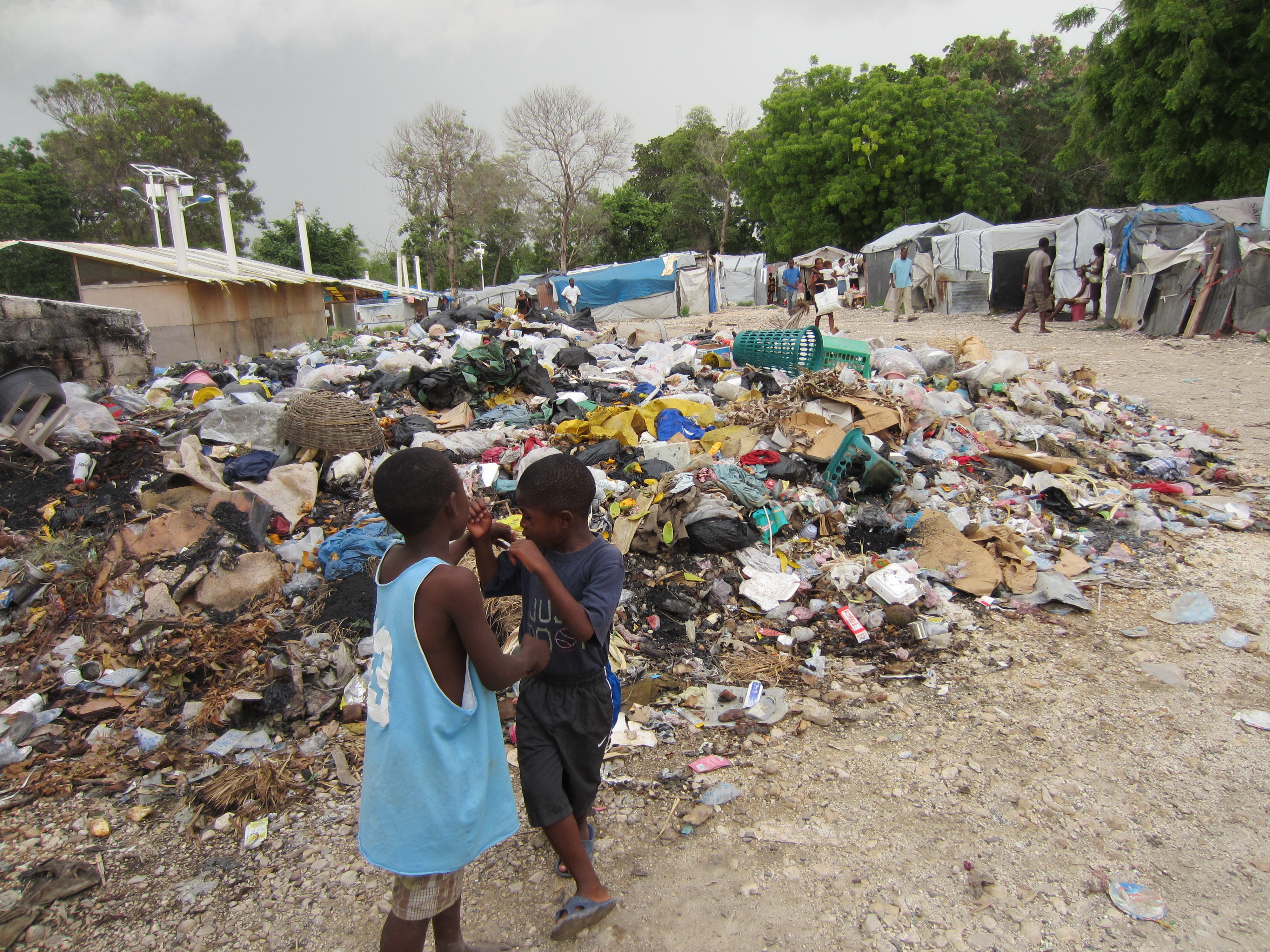
Camp Grace Village, Carrefour municipality, Port-au-Prince. © Amnesty International
Three years after the Haiti earthquake the housing situation in the country is nothing short of catastrophic. Hundreds of thousands of people are still living in fragile shelters.
Amnesty International is urging the authorities and the international community to make housing a priority for Haiti reconstruction efforts.
The January 12, 2010 earthquake left more than 200,000 people dead and some 2.3 million homeless. More than 350,000 people currently live in 496 camps across the country. Living conditions in the makeshift camps are worsening – with severe lack of access to water, sanitation and waste disposal – all of which have contributed to the spread of infectious diseases such as cholera.
Since the earthquake, tens of thousands of people have been forced from the camps. The International Organization for Migrations reported that nearly 80,000 more people living primarily in camps set up on private land are currently at risk of eviction – 21 per cent of the total camp population.
Marie (not her real name) and her child were violently and forcibly evicted along with tens of other families from Place Jérémie on December 21, 2011.
“The camp committee was putting pressure on us to leave the camp. They said they needed the square for a [football] championship. But we didn’t have anywhere to go so we stayed there. They distributed leaflets every now and then with threats. At night they would throw stones and bottles on our tents … Then one day at 3 o’clock in the morning, they came and started knocking on the doors. Then they destroyed my shelter with razor blades and knives… They pushed me out and started tearing down everything. I did not have time to take any of my things with me; I left only with the clothes I was wearing.”
Haiti suffered from a severe housing deficit even before the earthquake but for hundreds of thousands, the situation today is catastrophic.
Many people told Amnesty International delegates in Haiti of their worries about not knowing where they would live after the end of the subsidies, as they would not be able to afford the rent. As it is, they are currently struggling to feed themselves and their children, let alone pay for other basic essentials such as clothing, medicine and education.
Last April, the Haitian authorities made public a draft of a National Policy on Housing. The plan sets out a number of priorities for the construction of houses but does not set the conditions for those living in poverty to access adequate and affordable housing. The plan also does not commit to preventing forced evictions.
In 2010, the world couldn’t move fast enough to help Haiti. But three years later, we see that the hopes for its recovery have not been realized, as the rights of Haitians do not seem to have been made a priority. The country needs action from national authorities and real support from the international community.
We can see the difference between rich and poor countries after natural disasters. Japan also suffered something similar, and most of the affected areas were rebuilt. Haiti is an example in future if the global warming really acts like some scientists are warning the world – the "third nations" will suffer much more.
Here on Brazil, where I Live, the government response after natural disasters is really a disaster or very dissapointed. RIo de Janeiro, january 2011, the big storms killed 1,000 people and several other lose their houses.
The State of Rio de Janeiro got 500 million dolars from Federal Goverment to build new houses. The money was stolen, any house was made and people still living under bad condictions.
Knowing the current situation of Haitian 3 years afthe the earthquake is depressing. Hundred of thousands people are still living in calamity state with their fragile houses. It's about time that nternational community should work together to help Haitians have a decent place to live with.
Natural disasters are a huge issue for our society and I understand that for some people relocation seems impossible, but it's definitely an option for others…
I write here to express my indignation. And 5 years after the earthquake that devastated Haiti ago, and although you can not say that the situation remains the same as that contained in this article is true that it is much worse than it could be.
I am an architect and work in a company dedicated to the construction of manufactured homes and modular homes in Spain. When the tragedy occurred in 2010, my company was one of the most commonly involved in international aid my country. We had made a supply of materials and draft cosntrucción 30 modular homes. But we find a slow and sluggish bureaucracy pueso us a thousand obstacles and made us desist.
It's amazing that the internal politics of a country prove a retaining wall for the good faith efforts of those who want to help.